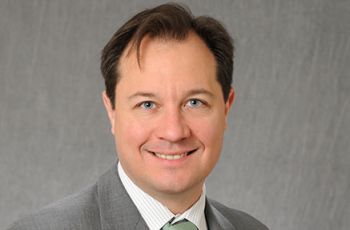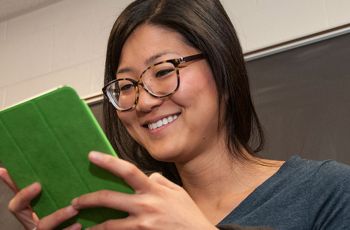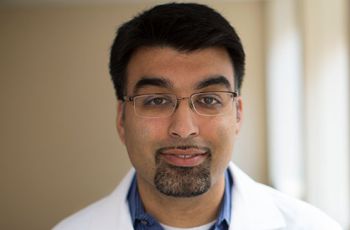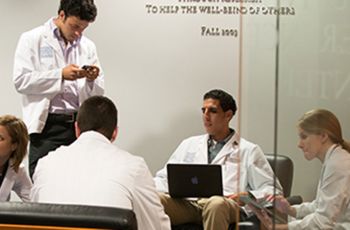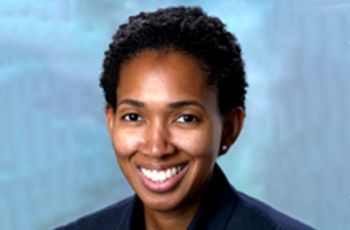Health Care Technology
Jesse Pines, M.D., director for the Center of Healthcare Innovation and Research Policy, and professor of emergency medicine, spoke to Forbes about the applications of virtual reality technology in healthcare.
iPads are a core component of the revised M.D. program curriculum making modern technology an integral part of a medical student's education.
The GW School of Medicine and Health Sciences has acquired a state-of-the-art birthing simulator to teach students how to care for mother and child during delivery and how to address complications.
Neal Sikka, M.D., director of the Section of Innovative Practice and associate professor of emergency medicine, helped launch the app HerStory, which provides a platform for women affected by breast cancer and mastectomy to share their stories and give emotional support to other patients.
The GW School of Medicine and Health Sciences is pleased to announce that it has received a generous grant from KARL STORZ Endoscopy-America for equipment to help train future health care leaders in the latest surgical and other treatment techniques.
The GW Hatchet covered new technologies and a revised M.D. curriculum slated for fall 2014. The GW School of Medicine and Health Sciences will distribute iPads to its about 180-student first-year class, investing in a tool that is becoming more prevalent for doctors around the country.
Beginning in fall 2014, each first-year GW medical student will also receive an iPad—a tool that is commonplace in today’s hospitals, allowing physicians to access electronic medical records and information on the web from their patients’ bedsides.
Former Sen. Tom Daschle joined experts at the George Washington University School of Medicine and Health Sciences and the George Washington University Milken Institute School of Public Health to discuss the role of technology and education in improving health care.
Ivor Horn, M.D., M.P.H., associate professor of pediatrics, was quoted by Healthcare IT News from a presentation she gave on ways minority populations can benefit from health IT.
This medical innovation, based on collaborative research by Drs. Marco Mercader, M.D., a cardiologist; Matthew Kay, D.Sc., a biomedical engineer; and Narine Sarvazyan, Ph.D., a physiologist, at the GW School of Medicine and Health Sciences (SMHS) and the GW School of Engineering and Applied Science…
